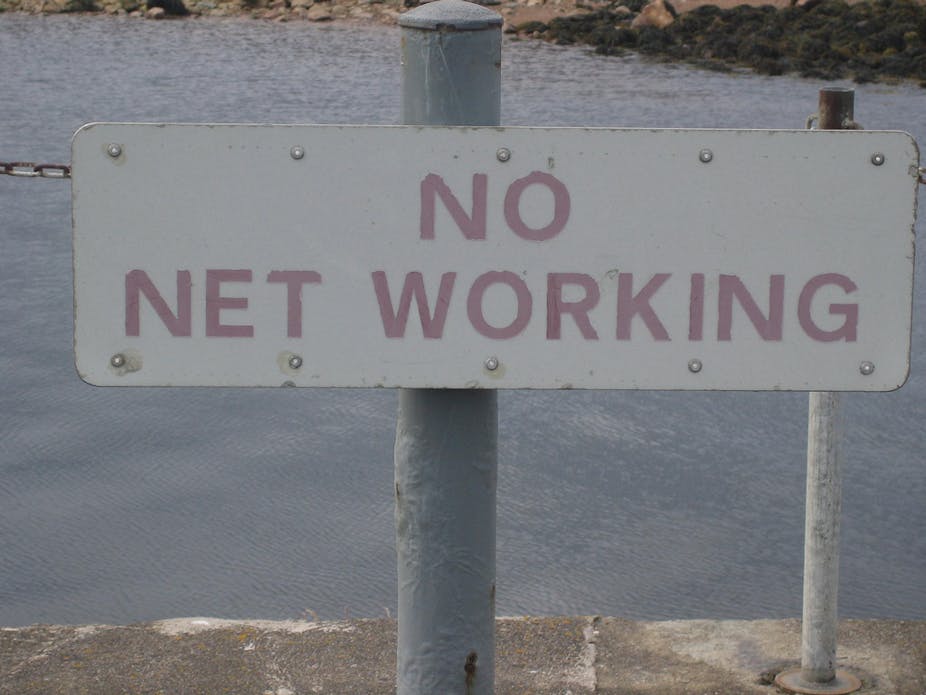Open health refers to a set of developing information technologies that make it easier for patients, professionals and administrators to access health-care information or make it anonymous and open to the public.
This is done by integrating existing health-care records and data. It is hoped the result will be more health information for more people to access more easily.
The digital divide
Open health requires online access. It’s easy to think of this as a background issue because the national broadband network is due to roll out in Australia over the next few years. But the so-called digital divide is a real concern in Australia and around the world.
What’s more, the world isn’t just divided between those who have internet access and those who don’t. We also need to consider the staggering differences between the quality of access, individual internet literacy, and how these variables can be leveraged to create good outcomes.
Although the digital divide is closing, a large number of vulnerable individuals still don’t have basic internet access. And technological literacy is a necessary part of using open health services.
Open health will hold data on vulnerable populations that those populations may not be able to use through lack of access. The elderly, for instance, are major users of health-care services so we need to ensure that they have the technological access and the capacity to engage with open health.
New technologies can bring huge benefits to those with the resources, education, and opportunity to access them. Open health is no exception.
Privacy and anonymity
Perhaps the most obvious concern for open data policy is the privacy of individuals. If there’s enough identifiable information in a data set that has become public, then individuals can be picked out and potentially targeted by private businesses, government agencies, and even by police in ways they might not want.
Even if the intentions of the viewer are good, we still have the right to expect that our personal information remains anonymous and our privacy is protected.
Linked data can be very useful to citizens and businesses alike, but carries with it the risk of de-anonymisation. There’s a concern that primary data, which hasn’t been interpreted or aggregated, can be used to identify individuals.
The important thing about linking data is that individual data sets, such as age, height, car model and postcode, are not considered overly private. And a lot of this sort of innocuous personal information can be accessed online - through sites such as Facebook, and census data, for instance.
We should also be concerned about who can exploit the data, and how much control we have over access. Some of us may not want even our anonymised data being used in ways we don’t agree with.
Open health should make opting out simple. While large scale opt-outs are likely to diminish the utility of data, we have to weigh the trade-off between privacy and potential innovation carefully.
Finally, to whom do we turn if something goes wrong? With a move towards more automated and rapid release of data, there’s more urgency around what options individual citizens and groups have to question, comment, or contest the release and use of open data.
Just more work?
These are old issues that have been around since ehealth was proposed some 13 years ago. What new things should we be looking for in open health?
Primary health-care givers treat illness, they don’t work on open data strategies. Indeed, they may not even have time to use open data effectively. New policies bring new responsibilities around reporting and this could burden already over-worked doctors.
This isn’t helped, in our case model of the United Kingdom, by growing patient numbers and needs. England now has fewer hospital beds than it did in 1990 but emergency admissions are climbing. Patients are getting older and have different needs that hospitals are struggling to meet, and over-worked care-givers struggle to meet their needs in and out of the hospital.
We also need to ensure that health-care providers aren’t prevented from doing their job as a result of new policies. Open health data can help us all, but only if they are properly supported.
Cultures of responsibility
Open health policy works with the assumption that getting benefits out of open health is the individual’s responsibility – a trend a recent UK publication referred to as “responsibilisation.” We think this is a problem – if open health is really about improving our lives, it shouldn’t just shifting the burden downstream.
Done badly, open health could reduce responsibility for a community’s health solely to the individual. Being responsible for our health doesn’t mean the public health system shouldn’t help.
As we said in our first article on open health, we don’t think these issues are insurmountable, or reasons not to pursue open health. Looking critically at the problems we face is the only way to solve them – a utopian vision of our open health future will only lead us astray.
This is the second part of Open Health, an intermittent series on the role of open health in shaping the future of Australian health care. The previous article is linked below.

